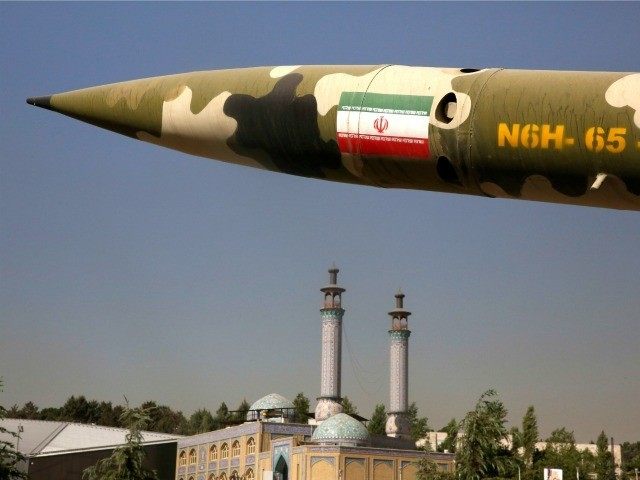U.S. officials are concerned Iranian militants currently fighting ISIS in Iraq with help from U.S. air power could eventually turn on American troops in the country.
A report by Politico quotes unnamed military sources who say fear of an Iranian attack on the 3,000 U.S. soldiers currently in Iraq as advisers. U.S. troops are not considered to be at risk now because they have no front line presence and operate from controlled locations. More importantly, the ongoing nuclear negotiations and the need to cooperate with U.S. air power to defeat ISIS may be restraining Iran, at least for the moment.
However that situation is likely to change and with it the Iranian calculus. Robert Ford, who served President Obama as a liaison in Syria, tells Politico, Iran is “going along with it now because they need us. But as soon as the Islamic State is contained or degraded sufficiently they will want us to leave — and they will encourage us by a variety of means, including mortar strikes and rocket strikes.”
Iranian attacks on the U.S. were an ongoing problem during the Iraq war. Iran produced a particularly lethal type of IED known as an Explosively Formed Penetrator (EFP) and distributed them within Iraq. Military reports released in 2010 by Wikileaks confirmed that, in addition to EFPs, Iran flooded Iraq with “guns and rockets, including the Misagh-1 surface-to-air missile, .50 caliber rifles, rockets and much more.” It is estimated Iran was responsible for as many as 20 percent of American casualties during the Iraq war.
Even secure compounds may not be enough to protect U.S. troops. Iran is believed to have pulled off a daring attack in January 2007 on a compound in Karbala. Twelve men disguised as U.S. soldiers kidnapped five Americans and removed them from the base. All five were later killed. The attack was traced back to the Iranian Quds force operating under the command of Qassem Suleimani, the same man seen visiting troops in Tikrit, Iraq recently.
This recent history of Iranian attacks on U.S. troops is said to be playing into decisions about troop levels in Iraq. While more troops might be helpful in the fight against ISIS they also become a bigger target should Iran turn on them.
Iran’s hostility also factors in to our approach to the ouster of Syria’s Bashar Assad. Assad has received significant Iranian support and is personally supported by Suleimani. Politico cites concern that a more aggressive approach by the U.S. might lead to an Iranian attack.
Former Pentagon official Derek Chollet tells Politico, “It does point up the fact that we have a huge problem with Iran outside of the nuclear space.” It raises the question why we are even negotiating with people we know killed hundreds of U.S. troops just a few years ago and who we suspect might do so again given the chance now.

COMMENTS
Please let us know if you're having issues with commenting.